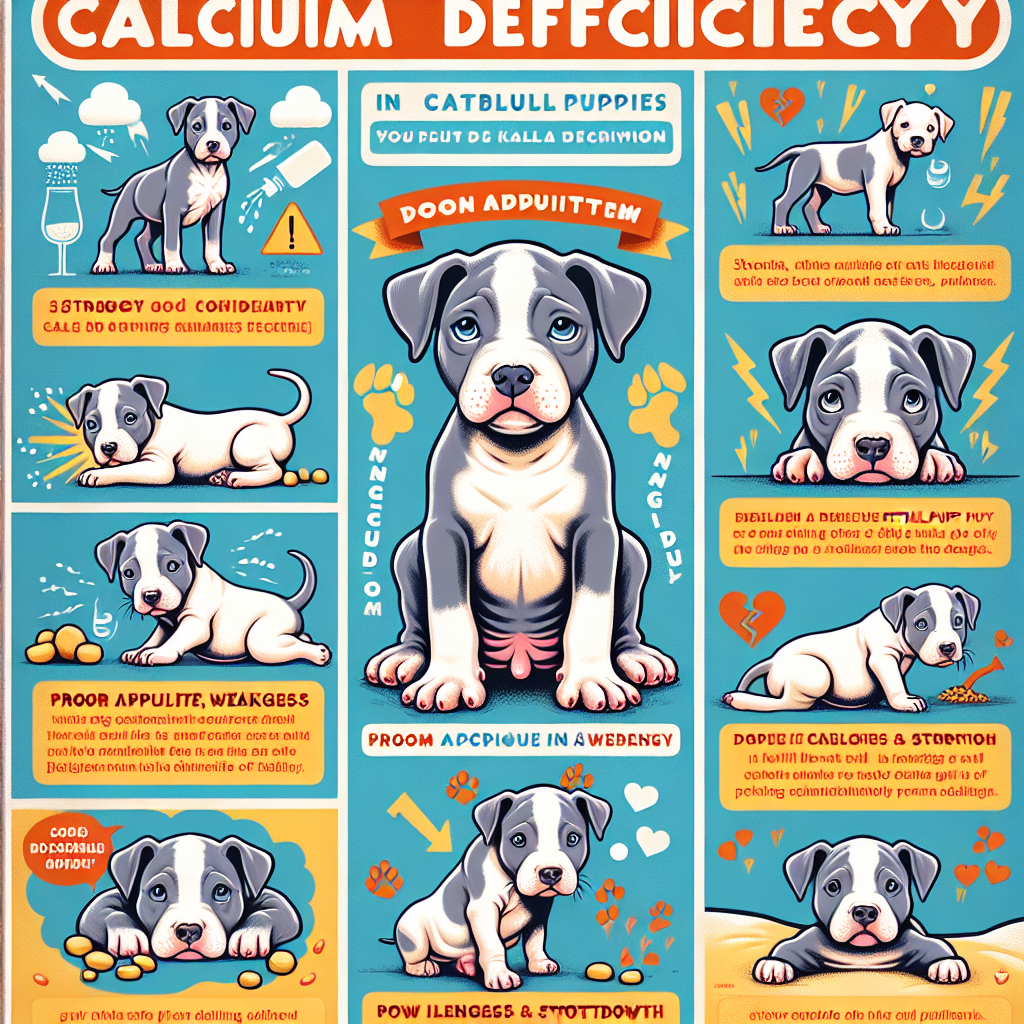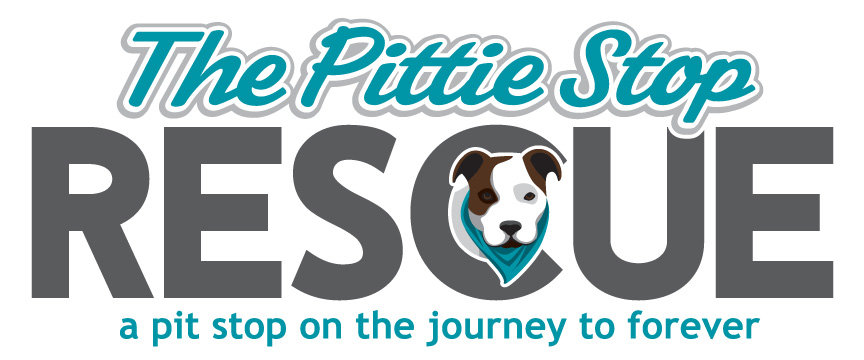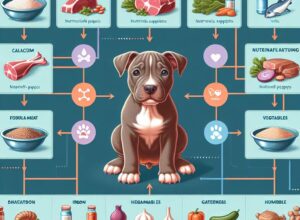
Key Takeaways
-
Calcium deficiency in pitbull puppies can lead to serious health issues like bone deformities and muscle twitching.
-
Signs of calcium deficiency include weakness, lack of appetite, and unusual behavior.
-
A balanced diet rich in calcium is essential for preventing deficiency, with supplements as a potential aid.
-
Immediate veterinary care is crucial for treating calcium deficiency to avoid long-term complications.
-
Understanding the role of calcium in your puppy’s growth helps you spot and address issues early on.
Spotting the Red Flags: Symptoms of Calcium Deficiency
When your lively pitbull puppy starts showing signs of lethargy or muscle twitches, it’s not just odd; it’s a red flag. Calcium deficiency, also known as hypocalcemia, can manifest in various unsettling symptoms that shouldn’t be ignored. Most importantly, you need to be able to recognize these symptoms to act swiftly.
Muscular and Bone-Related Symptomatology
Calcium plays a critical role in your pitbull puppy’s muscular and skeletal development. If your puppy isn’t getting enough calcium, you might notice muscle tremors or spasms. This is because calcium is essential for muscle contraction. In severe cases, your puppy might even experience seizures. Besides that, your puppy’s bones might not develop correctly, leading to deformities or fractures.
Behavioral Changes Indicating Discomfort
It’s not just about the physical signs; behavioral changes can also signal a problem. If your normally playful puppy seems unusually withdrawn or irritable, it could be because they’re in discomfort. A lack of appetite is another tell-tale sign. These behaviors often accompany the physical symptoms of calcium deficiency and serve as an early warning system that your puppy needs help.
When Deficiency Turns Danger: Health Complications
Ignoring the signs of calcium deficiency can lead to a cascade of health complications. The condition doesn’t just impact your puppy’s current well-being; it can have lasting effects on their overall health.
The Domino Effect of Prolonged Calcium Deficiency
A prolonged lack of calcium can lead to chronic health issues such as poor bone density and growth problems. This isn’t just about a limp or a slow gait; it’s about ensuring your pitbull puppy can live a full and active life. Therefore, understanding the long-term consequences is crucial.
The Critical Nature of Timely Intervention
Immediate veterinary intervention can make the difference between a quick recovery and long-term damage. The sooner you act on the symptoms of calcium deficiency, the better the chances of your puppy making a full recovery without any permanent issues. That’s why it’s essential to take any signs seriously and seek professional advice right away.
Feeding Your Pitbull Puppy Right: Diet Dos and Don’ts
Ensuring your pitbull puppy has a balanced diet is the cornerstone of preventing calcium deficiency. A well-rounded diet is rich in high-quality proteins, fats, and, crucially, the right amount of calcium. It’s essential to feed your puppy food that’s formulated for their growth stage. Puppy food typically has a higher calcium content to support their rapid development. Here are some quick dos and don’ts:
-
Do choose a puppy food that meets the AAFCO guidelines for growth.
-
Do provide a consistent feeding schedule to maintain stable calcium levels.
-
Don’t feed your puppy an adult dog food, which may not have the necessary nutrients for growth.
-
Don’t overfeed or underfeed, as both can lead to health issues.
Supplements: Are They Necessary?
While a balanced diet is typically enough to meet your puppy’s needs, there are instances where supplements might be necessary. However, it’s crucial to consult with your veterinarian before adding any supplements to your puppy’s diet. Excessive calcium can be just as harmful as a deficiency, potentially leading to bone and joint issues as your puppy grows.
Remedying the Imbalance: Treatment Strategies
If your pitbull puppy is diagnosed with calcium deficiency, your vet will outline a treatment plan. This might include dietary adjustments, calcium supplements, or intravenous calcium in severe cases. Close monitoring will be necessary to ensure that calcium levels return to normal and remain stable.
From Diagnosis to Recovery: Veterinary Protocols
After diagnosing hypocalcemia, your vet may conduct further tests to determine the underlying cause. Treatment protocols may vary depending on the severity of the deficiency. In mild cases, dietary changes may suffice, but more severe cases require aggressive treatment like IV calcium injections under close veterinary supervision.
Post-Treatment: Ensuring a Relapse-Free Future
Once your puppy’s calcium levels are back to normal, it’s essential to prevent a recurrence. This might mean ongoing dietary management or regular check-ups to monitor their calcium levels. The key is to establish a long-term plan with your vet to keep your pitbull healthy and strong.
The Role of Calcium in Pitbull Puppy Development
Calcium is vital for more than just strong bones and teeth; it’s also necessary for your pitbull puppy’s heart health, muscle growth, and nerve function. Understanding the role of calcium can help you appreciate the importance of preventing deficiency and recognizing symptoms early on.
Understanding the Essentiality of Calcium
Calcium is a mineral that’s critical for life. It supports skeletal health, aids in nerve transmission, and helps with blood clotting. In growing puppies, calcium is especially important for ensuring proper development and preventing health issues later in life.
Early Signs Your Puppy Might be Calcium Deficient
Early signs of calcium deficiency include restlessness, muscle tremors, and a lack of coordination. You might also notice your puppy has difficulty standing or walking. These symptoms can be subtle at first, so it’s important to be vigilant and proactive in monitoring your puppy’s health.
Remember, your pitbull puppy relies on you for their health and well-being. By staying informed and attentive to their dietary needs, you can help ensure they grow up to be a strong, healthy, and happy dog. If you ever have concerns about your puppy’s health or diet, don’t hesitate to reach out to your vet for advice.
FAQs: Your Concerns Addressed
How can I tell if my pitbull puppy isn’t getting enough calcium?
Look out for symptoms such as muscle spasms, weakness, or a lack of coordination. Behavioral changes like decreased appetite or unusual restlessness can also be signs. If your puppy has trouble standing or walking, or if they exhibit any signs of discomfort, it’s time to consult your vet.
What foods contribute to a calcium-rich diet for puppies?
A calcium-rich diet for puppies includes high-quality commercial puppy food that adheres to the AAFCO guidelines. Foods such as yogurt, cheese, and specially formulated puppy milk can be good sources of calcium but should be given in moderation and under the guidance of a vet to avoid imbalances.
Are there specific breeds more prone to calcium deficiency?
While any breed can suffer from calcium deficiency, fast-growing breeds like pitbulls may be more susceptible due to their rapid growth and high calcium requirements. Always ensure your growing puppy has a diet tailored to their specific needs.
Can too much calcium also harm my pitbull puppy?
Yes, excessive calcium can lead to skeletal problems, especially in large breed puppies like pitbulls. It’s crucial to follow a vet-recommended diet to avoid over-supplementation, which can be just as harmful as a deficiency.
What steps should I take if I suspect my puppy has hypocalcemia?
If you suspect your pitbull puppy has hypocalcemia, seek veterinary care immediately. A professional diagnosis is essential, followed by a treatment plan that may include dietary adjustments, supplements, or in severe cases, intravenous calcium. Ongoing monitoring will be necessary to prevent recurrence.



